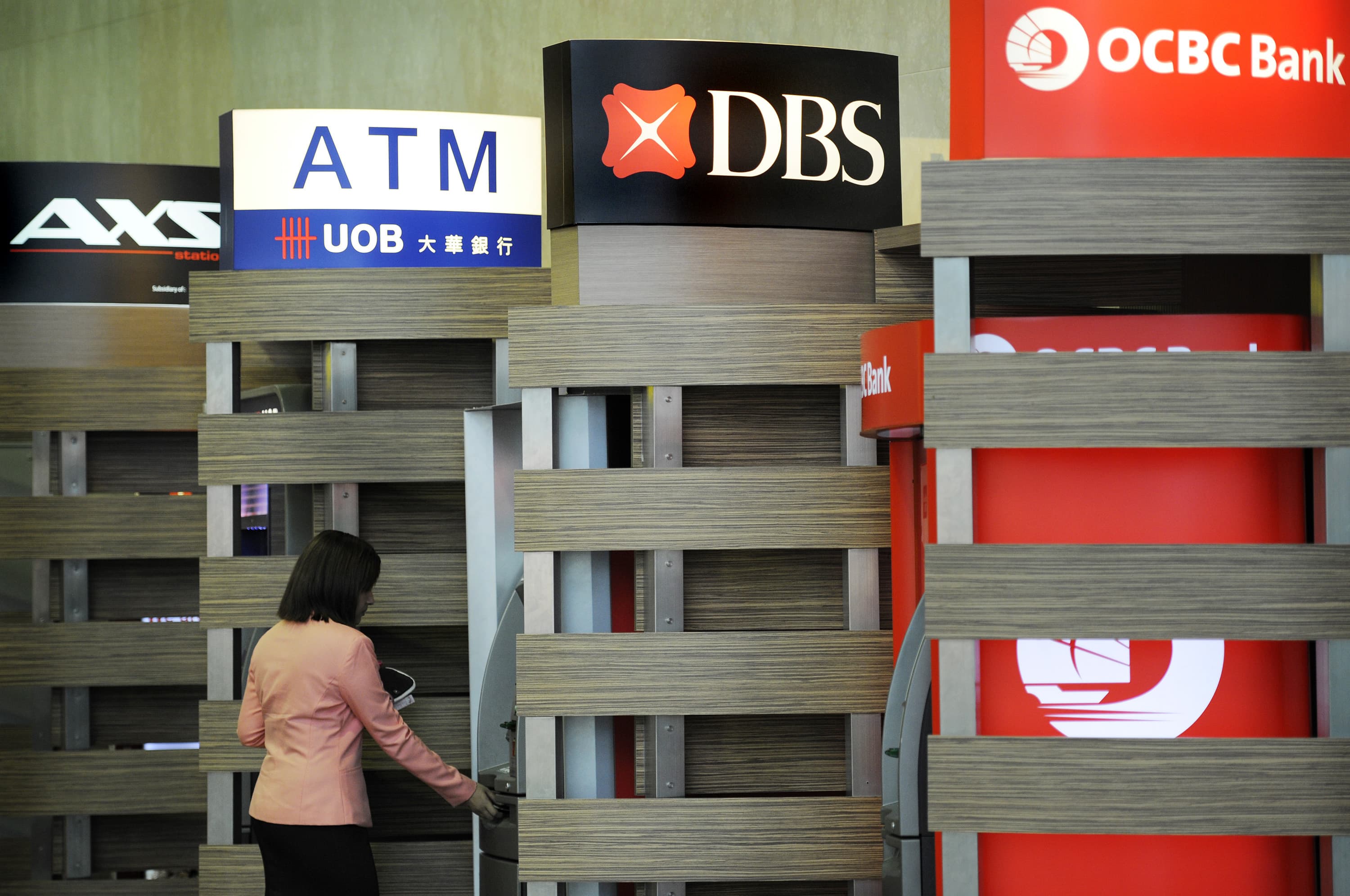Automated teller machines of the three Singapore-listed banks: OCBC, DBS and UOB.
Munshi Ahmed | Bloomberg | Getty Images
Shares of Singapore’s top three banks tumbled in early trade Thursday after the country’s financial regulator asked lenders to cap dividends this year in light of the economic uncertainty, due in part to the coronavirus pandemic.
DBS Group Holdings and Oversea-Chinese Banking Corp — Singapore’s two largest banks — suffered losses of over 3% from the previous close. Their smaller peer, United Overseas Bank, fell by more than 2%.
The three banks account for around one-third of the benchmark Straits Times Index, which dipped around 1.6% on Thursday.
The country’s financial regulator and central bank, the Monetary Authority of Singapore, on Wednesday urged banks to cap their total dividends per share this year to 60% of last year’s amount.
It also said lenders can offer shareholders the option of receiving the dividends in the form of additional shares instead of cash.
Investors need to keep in mind the strong capital positions … the customary prudence of the central bank and the fact that the 60% cap is not as severe as restrictions in some other jurisdictions.
Krishna Guha
equity analyst at Jefferies
The announcement by MAS followed similar — and comparatively more stringent — moves by other financial regulators around the world. The Bank of England urged banks to scrap dividends this year, while Australia’s financial watchdog recommended banks and insurers pay less than half of their profits to shareholders for the rest of 2020.
Singapore’s regulator said the dividend restrictions are a pre-emptive measure. It added that stress tests showed local banks remain resilient even under “adverse conditions consistent with a serious and prolonged public health crisis.
The country is one of the worst-hit in Southeast Asia by the coronavirus. As of Wednesday, Singapore reported over 51,500 cases and 27 deaths, according to its health ministry.
Its economy is forecast to shrink by between 4% and 7% this year — which would be the country’s worst recession since its independence in 1965.
“MAS wants to ensure the banks’ capital buffers remain ample in the face of significant uncertainties ahead, so that they can sustain lending to the economy,” said Ravi Menon, managing director of MAS.
Krishna Guha, equity analyst at Jefferies, said in a Thursday note that the dividend cap is likely to weigh on investor sentiment.
“That said, investors need to keep in mind the strong capital positions … the customary prudence of the central bank and the fact that the 60% cap is not as severe as restrictions in some other jurisdictions,” he said.
